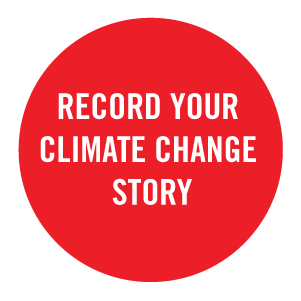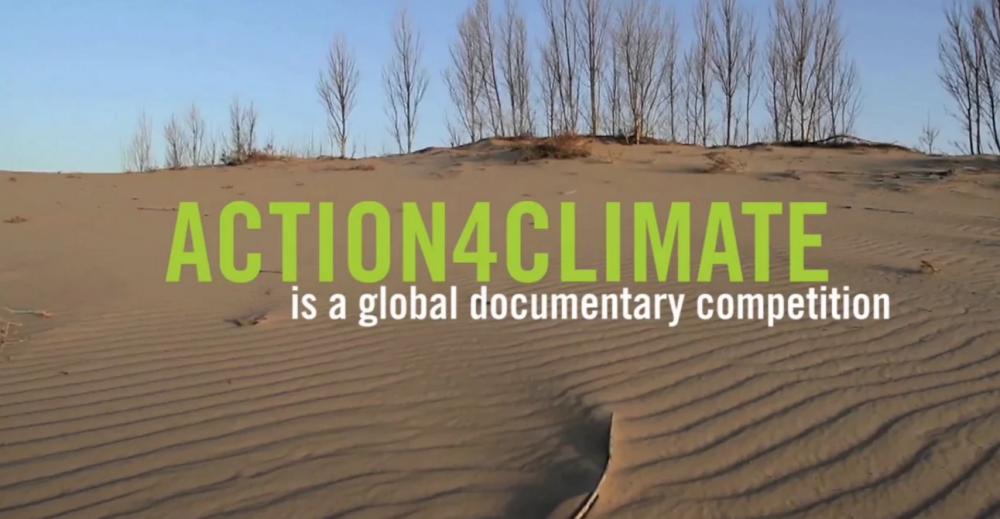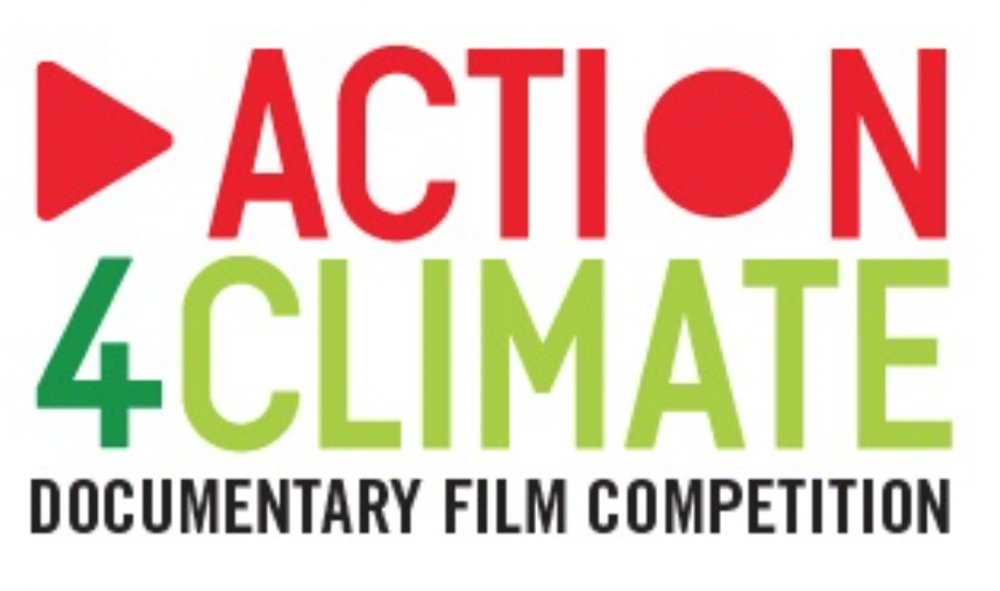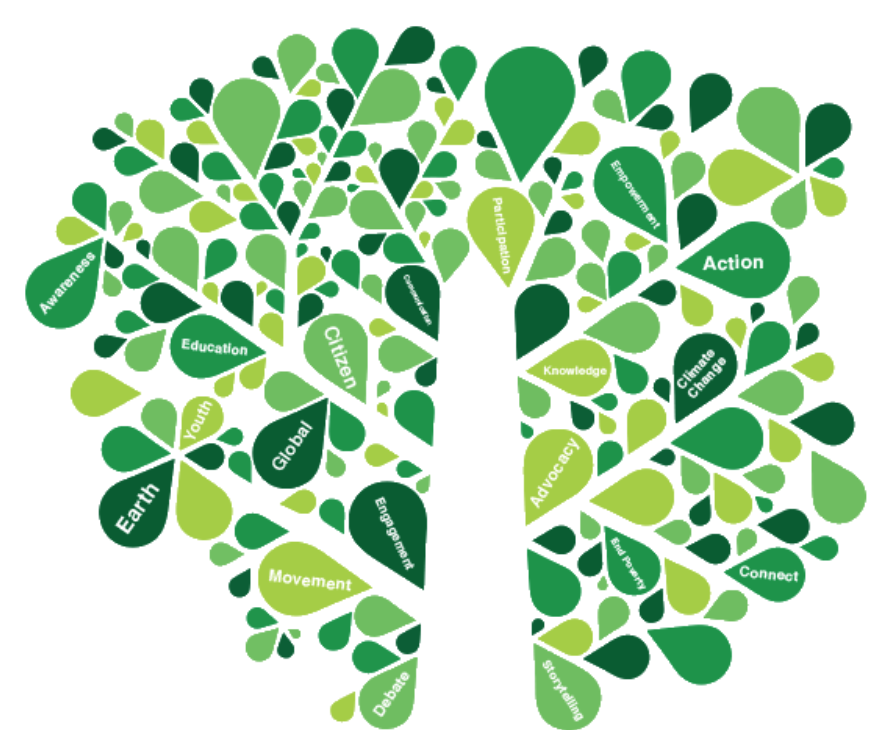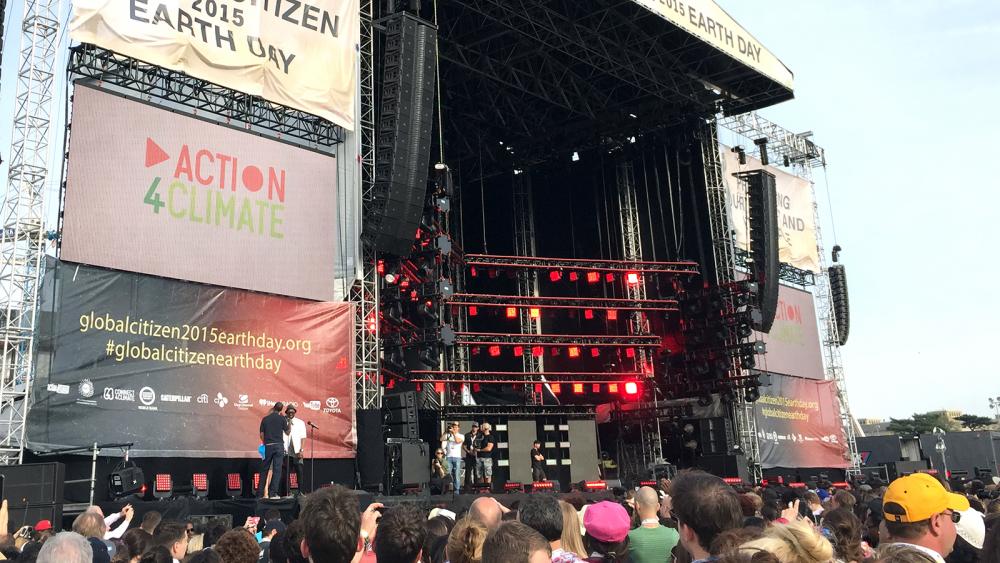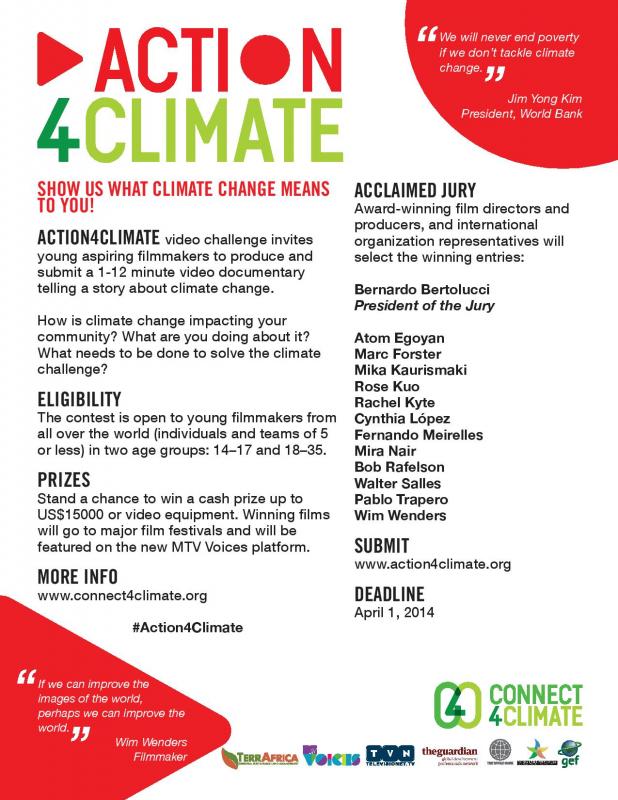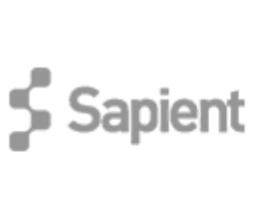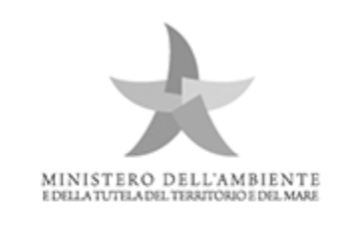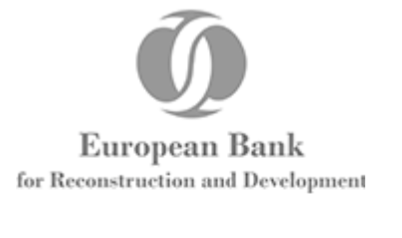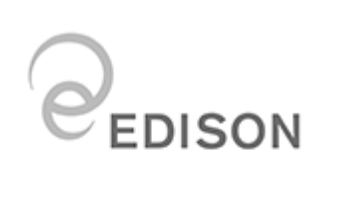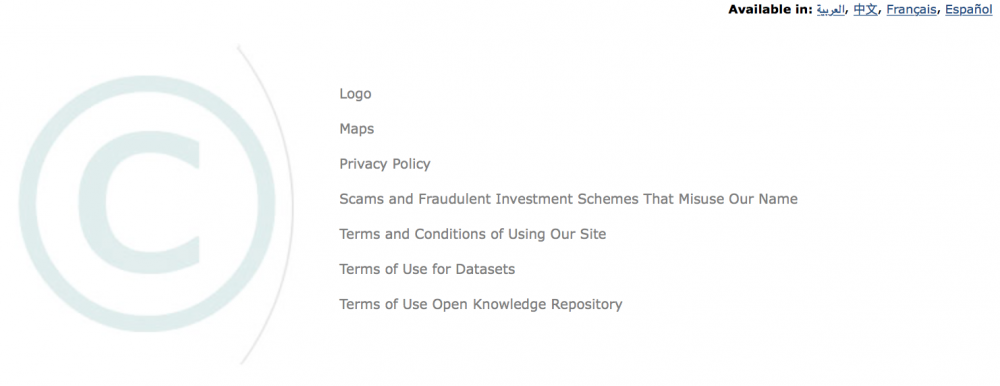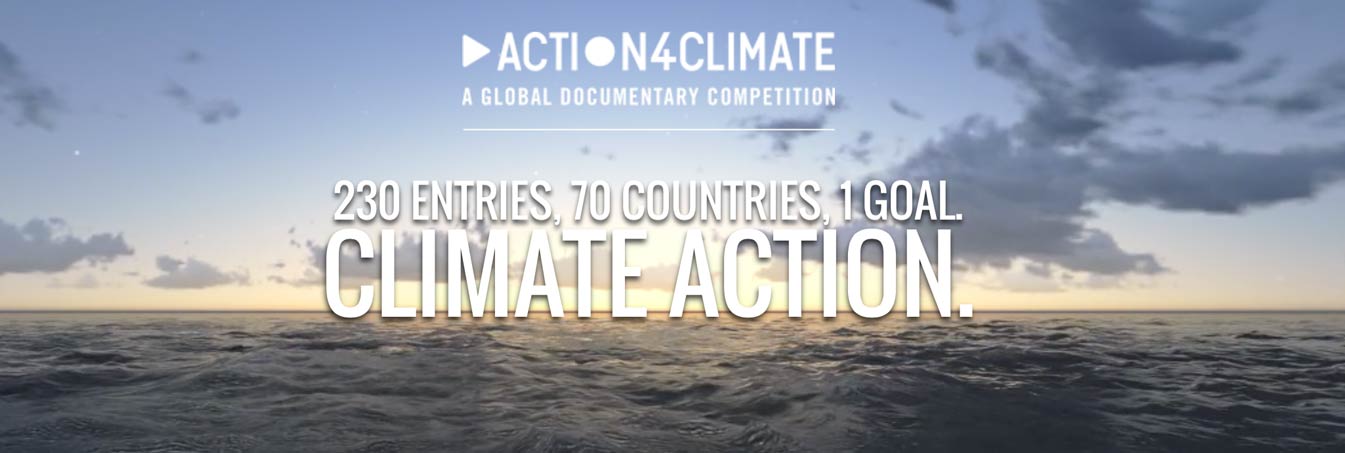
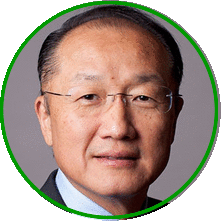 Jim Yong Kim, World Bank Group President
Jim Yong Kim, World Bank Group President
The Action4Climate competition challenged filmmakers to raise awareness of climate change, share experiences and inspire action by creating a video documentary.
The response was overwhelming. More than 230 videos from 70 countries were submitted, bringing to life the serious consequences of climate change across the world and highlighting the actions taken by local communities to tackle it.
Watch the shortlisted films on Vimeo.
The Winning Videos
The Trail Of A Tale (1st prize, 18-35 years)
A Video By Gonçalo Tocha, Portugal
A letter from the future is written to our recent past, telling us how the world ´it turned out right´.
It follows the trail of someone that left words written, words of change, of simple change. In this near future, the images of our world are the same, but the value of words can be very different.
[video:https://vimeo.com/90993982]
GLOBAL WARNING (2nd prize, 18-35 years)
A Video By Dobrin Kashavelov, Bulgaria/Philippines
A documentary about the super typhoon Yolanda - Haiyan which hit the Philippines on Nov 8th 2013
[video:https://vimeo.com/95871886]
Snows Of The Nile (3rd prize, 18-35 years)
A Video By Nathan Dappen, USA / Uganda
Uganda's Rwenzori Mountains rise 5000m from the heart of Africa. At their summits are some of Earth's only equatorial glaciers. But these "Mountains of the Moon," whose existence caused a sensation in Europe when they were first climbed in 1906, are changing fast. Snows of the Nile follows two scientist/photographers on an ambitious expedition to document the disappearance of Africa's last tropical glaciers.
[video:https://vimeo.com/95457095]
The Violin Player (1st prize, 14-17 years)
A Video By Francina Ramos, Benjamin Braceras, Argentina
It's an animation movie about a violinist playing at a theater and when he close his eyes he find the entire world melting. After a crazy play he open his eyes over an unexpected reality.
[video:https://vimeo.com/95909475]
Facing The Flood (2nd prize, 14-17 years)
A Video By Constantin Huet, Switzerland
The situation in the south of the Greenlandic Ice Cap is deteriorating. A global warming of the earth seems to threaten this area more than anywhere else in the world. Recorded temperatures have begun to fluctuate, and native inhabitants find their culture beginning to sink, below rising sea levels. As is the case for the inhabitants of the Maldivian islands, innocents who presently suffer the consequences of our pollution. At this rate, our future generations will have to face the flood.
[video:https://vimeo.com/95905537]
It's Easy If You Try (3rd prize, 14-17 years)
A Video By Zura Tegerashvili, Georgia
What is the problem with climate change and how we can solve it...
[video:https://vimeo.com/95904423]
Balud (Jury Special Award)
A Video By Panx Solajes, Philippines
Balud is a Filipino dialect word for "waves."
This short experimental film is a response to Typhoon Yolanda (International name: Haiyan), which swallowed my hometown Tacloban city last November, 2013. This film dedicated to family, friends and fellowmen who were lost on its wake, and to those who are still fighting for survival and for new beginnings.
[video:https://vimeo.com/107639017]
Pachamama (People's Choice Award)
A Video By Andressa Nowasyk, Luiza Stalder, Mauricio Iwaoka & Thiaggo Castro, Brazil
This documentary discusses the effects of global warming in São Carlos, a city in the state of São Paulo, Brazil. We follow Adinalsa, a farmer affected by the extreme heat of summer.
[video: https://vimeo.com/95904123]
Tinau (My Mother) (Connect4Climate Special Prize)
A Video By Victoria Burns, Kiribati
Scientists predict that Kiribati - a remote Island Republic in the Central Pacific - could be lost to rising sea levels in the next 50 years. As a result a whole nation faces an uncertain future. 'Tinau' is an intimate family portrait of a Kiribatese mother now settled in the UK and the ties that bind her to her former disappearing homeland.
[video:https://vimeo.com/95872818]
The Change (Connect4Climate Special Prize)
A Video By Ha Uyen, Huong Tra, Quang Dung, Quang Phuc, Vietnam
Danang, like many other cities in Central Vietnam, is highly vulnerable to climate change. In particular, typhoon and flood and their recently unpredictable patterns have caused severe impacts on the people's lives, especially the youth. This short film tells 2 interweaving stories of 2 youths in Danang whose lives and career orientations have been tremendously affected by the impacts of climate change.
[video:https://vimeo.com/95871554]
